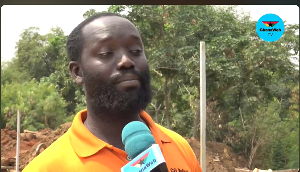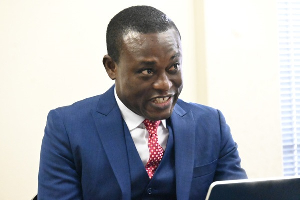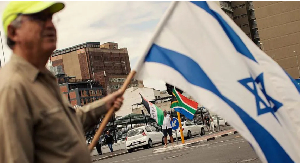“All battles are won before they are fought.” These words of Sun-Tzu, the ancient Chinese philosopher, emphasize the importance of preparation for any venture of great significance. With that in mind, the Ghana FA needs to be planning and preparing for success at the next World Cup in 4 years. Before getting into the details of that, it is important to recognize the achievements of the Black Stars. In 2006, they were eliminated in the second round, and in 2010, they were eliminated in the quarterfinals. The 2010 team went one step further than their predecessors. All of Ghana hopes that the 2014 team can go even further and win the World Cup. In order to maximize the Black Stars' chances of success, the following steps need to be taken:
1. Sign Milo to a long term deal for at least four years. Although many clamor that Ghana needs a Ghanaian coach, one cannot argue with Milo's record in competitive matches: first African nation to qualify for the 2010 World Cup, second place in CHAN 2009 (while our local club teams can't even qualify for the group stages of African club competitions), second place in the AFCON 2010 (with an injury-depleted squad), and one missed penalty kick away from making Ghana the first African team to qualify for the semifinals of the World Cup. Additionally, he has done a remarkable job in developing young talent on the team. Compare the performances of Asamoah Gyan and Andre Ayew at the AFCON 2008 to their performances in this last World Cup. Both players had excellent tournaments, and given the large number of young Ghanaian players who fail to live up to their potential, I think it is worth giving Milo some credit for this. The GFA may not want to spend the money to keep Milo, but given the World Cup bonuses they have received, they certainly afford to pay Milo the salary that he wants.
2. Get more experience playing against South American teams and strong teams from Western Europe. Ghana has suffered four defeats in the World Cup: two against South American teams (Brazil and Uruguay) and two against western European teams (Italy and Germany). In order to progress further in the World Cup, Ghana needs to learn how to beat these teams and that can only come by experience. Several friendlies each year need to be scheduled against South American and western European teams. This will give the Black Stars valuable experience, although friendly matches are often not taken seriously.
Additionally, the Black Stars should ask to play in the 2011 Copa America. Before you pass judgment on this idea, consider that Mexico and the United States are regularly invited to play in the tournament, because there is only a small number of South American countries. Ghana has a more talented team than both these countries and if they make it known that they are interested, I am sure that they would be invited. Ghana could gain valuable competitive experience from playing in South America, where the next World Cup will be hosted.
Ghana also needs to win the AFCON 2013 and qualify to play in the Confederations Cup. Consider how New Zealand benefited from playing in the Confederations Cup. They lost all of their matches in the Confederations Cup, but held out for draws against Italy and Paraguay in the World Cup. Playing in the Confederations Cup will prepare Ghana well to face quality teams in the World Cup.
3. Replace the old guard in the team. Fortunately, most of the team is young enough and will be back in four years. However, there are some critical areas where Ghana need to develop young players. The most important position that needs to be replaced is the goalkeeping position. Richard Kingson has been a faithful steward in the Ghana net for many years, and should be allowed to earn the hundred caps that he has requested. He is 32 years old, however, and showed signs of his age catching up with him at the last AFCON. A younger replacement must be found and developed over the next four years. Nobody should be ruled out and everyone should be invited to compete, regardless of previous performances. With Daniel Agyei, William Amamoo, Adam Kwarasey, and Stephen Ahorlu, I am sure that Ghana can find and develop a quality keeper to man the posts in four years.
Additionally, we cannot count on Hans Sarpei, John Mensah, and John Paintsil being around for the next World Cup. Fortunately, there are many young players who can step up to fill that void including Daniel Addy, Samuel Inkoom, Daniel Opare, Isaac Vorsah and Jonathan Mensah. Ghana should have a strong defense in four years. Ghana is blessed with so many talented midfielders, and the absences of Stephen Appiah and potentially Essien and Muntari will not be felt so strongly. However, they need to find and develop a right winger instead of using players out of position, as they did in this last tournament. Hopefully, Opoku Agyemang will be fit and playing in a better league in four years time and can fill this void.
Although some have suggested that Asamoah Gyan should retire, I believe that he will improve and be an even better player in four years. Consider that he has matured from the little boy who was diving to win a penalty kick against Brazil in 2006, to the strong man who shrugged off an American defender to score the winning goal in extra time in 2010. He will come back even stronger. If he doesn't, Prince Tagoe and Dominic Adiyiah should be ready in 2014. Hopefully, Eric Bekoe will have moved to a strong league in Europe by that time.
4. Improve the discipline and tactics of the team. Consider that three of Ghana's four goals conceded came off of set pieces (two from free kicks, one from a penalty kick). Ghana needs to stop fouling so much in dangerous positions. These can lead to suspensions and goal-scoring opportunities for opposing teams. Additionally, the Ghanaian midfielders and strikers need to stop taking so many long-distance shots. Sulley Muntari is the only player who has shown the capability to consistently score goals from a long distance, and he should be given free reign to take these shots. However, Asamoah Gyan, Kevin Prince-Boateng, and Kwadwo Asamoah wasted numerous chances in the last tournament, where it would have been better to be patient and try to get in behind the defense or pass to an open teammate.
5. Finally, be prepared for penalty shootouts, both by taking penalty kicks regularly in practice and by researching the tendencies of the players on the opposing team. I don't know why Ghana had John Mensah and Dominic Adiyiah taking penalty kicks this time around. John Mensah is a central defender and Adiyiah is still too inexperienced. Kwadwo Asamoah, Anthony Annan, and Kevin Prince-Boateng should have taken those kicks.
Recall that in 2006, Oliver Kahn had a sheet of paper that he referred to during the shootout against Argentina. The German coaches had watched every single penalty kick taken by all the Argentine players in the last three years, and had made a list of each player's tendencies. This allowed Germany to defeat Argentina. My South American friends have told me that Uruguay's Abreu is famous for chipping his penalty kicks. If Richard Kingson had known this beforehand, he could have easily saved the kick. There is no reason that Ghana cannot get this information ahead of time by the same type of extensive research.
If we take these steps and continue developing our young players, Ghana can break the quarterfinal barrier in the next tournament and make Africa proud. But we must start preparing for success now. We have a very good thing going with the Black Stars. Let's take the necessary steps go even further.
Philip Mensah
philip_mensah_81@hotmail.com
Sports Features of Wednesday, 7 July 2010
Source: Philip Mensah












